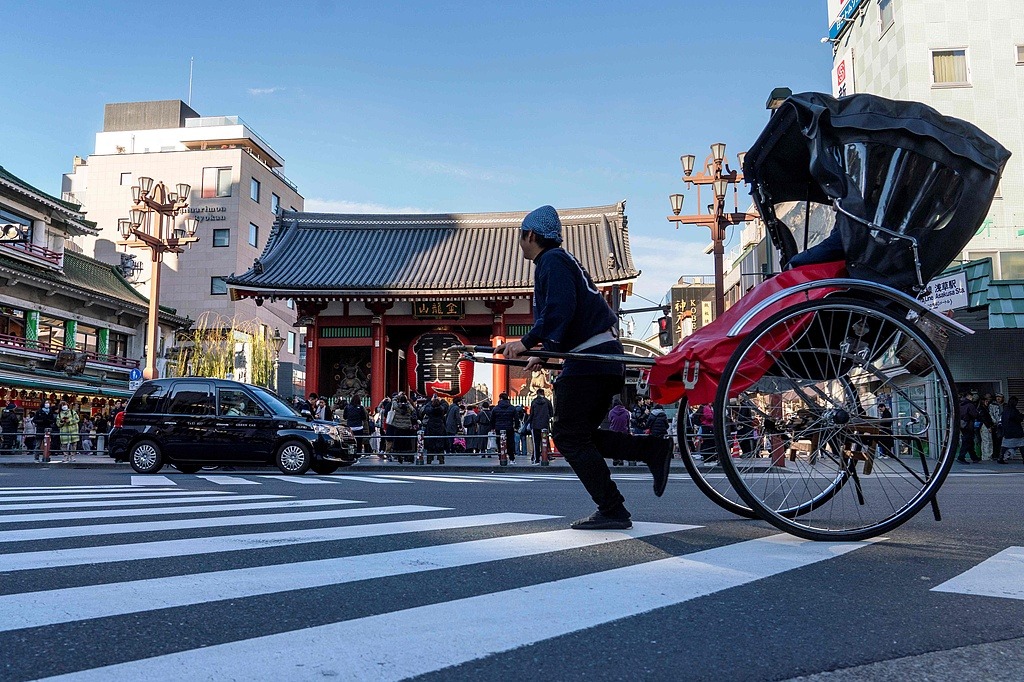Netizens share experiences of COVID-19 symptoms from late 2019


COVID-19 symptoms, especially in US, spur calls for origin tracing shift
LONDON-Growing numbers of people, mainly from the United States, have recounted their experiences on social media about apparent coronavirus infections in late 2019.
As more people around the world come forward with reports of COVID-19-like symptoms well before the disease was identified, many experts say that the early suspected cases should be the emphasis of the next phase of investigations into the origins of the virus.
More than 1,000 Twitter users claimed that they or their family members and friends were infected with the novel coronavirus in December 2019 or earlier, according to recent research.
At least 100 of these users, who were authenticated with their real names, have recounted their experiences about getting infected with the virus and being treated in hospitals. The symptoms they have described are very similar to those of the pneumonia disease caused by COVID-19.
"My wife and doctors are convinced I had covid 10/01/2019. It was horrendous, they didn't know what it was then. I was isolated in an ICU 10 days, low oxygen count, broken glass x-rays, viral and bacterial pneumonia they couldn't identify with multiple tests," Washington resident Jamie Kettenhofen said in a tweet on Dec 22, 2020.
Another US Twitter user, James Crewtocks, posted on Dec 8, 2020: "Reckon I had COVID Nov/Dec 2019. Severe recurring fevers, respiratory issues (had to go A&E twice & put on a nebuliser each time), steroids, X-Ray found issue in one lung-most ill I've ever been. Felt that if I hadn't gone to A&E, that I wouldn't a woken up from my sleep."
Detroit user Kelsey wrote on the platform on Dec 11, 2020: "My son had viral reactive airway disease in December with pneumonia in both lungs. He barely looked sick, but was actually very sick. He ended up in this hospital. Donated blood from 2019 shows covid antibodies, and now I'm 100% convinced that he had covid. He's totally fine now, this was last December."
According to statistics, among those Twitter users worldwide, over 75 percent of them are from the US, while the rest come from other regions including Europe and South America.
So far, there have been mounting clues that the novel coronavirus might have appeared in many parts of the world before the end of 2019.
An article published on the website of the British journal Nature last week reported that researchers at the US Department of Agriculture analyzed a number of serum samples collected from white-tailed deer in the northeastern United States and found that one-third of those animals have antibodies against SARS-CoV-2-the virus that causes COVID-19.
Of those samples collected in 2019, one was detected as carrying the virus-related antibody, indicating that it has been infected with SARS-CoV-2. However, the first COVID-19 case was officially reported in the US on Jan 21, 2020.
On Nov 30, 2020, researchers at the US Centers for Disease Control and Prevention published a report in the bimonthly Clinical Infectious Diseases journal stating that 106 blood samples containing novel coronavirus antibodies were found among the 7,389 blood samples collected by the American Red Cross between Dec 13, 2019 and Jan 17, 2020. Such a finding means the virus may have appeared in the US by then, weeks before the country's first officially confirmed COVID-19 infection.
Blood samples collected
In November 2020, a study conducted by Italian National Cancer Institute in Milan and published in the country's Tumori Journal, showed that 111 of the 959 healthy volunteers in Italy who participated in a lung cancer screening trial between September 2019 and March 2020 had developed COVID-19 antibodies. Meanwhile, four blood samples were collected in the first week of October 2019, which means those people had been infected with the virus as early as September 2019.
Human sewage samples collected on Nov 27, 2019, in Florianopolis, the capital and second largest city of the Brazilian state of Santa Catarina, contained COVID-19 traces, said a study published on July 2, 2020, that was led by the Federal University of Santa Catarina.
The collection date was about two months before the first COVID-19 case was reported in the US, and three months ahead of the first case in Brazil. Researchers believe that human infections may have started 15 to 20 days before these samples were collected.
Experts believe that early suspected cases and early clues in animals and the environment should be the focus of the next stage of virus origin-tracing work.
Liang Wannian, team leader of the Chinese side of the WHO-China joint team studying the origins of COVID-19, said in an interview recently that he recommends the WHO should evaluate and analyze the early suspected cases and the early evidence found in animal and environmental studies to determine the scientific validity and reliability of the existing evidence.
Xinhua































